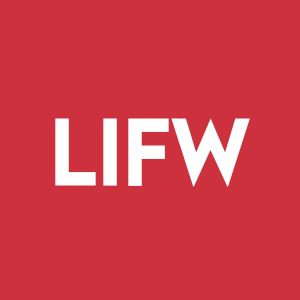LifeWallet Announces a New Pharmaceutical Antitrust Settlement Totaling $3.1 Million
Rhea-AI Summary
LifeWallet (NASDAQ: LIFW) has announced a $3.1 million pharmaceutical antitrust settlement, expected to be collected in Q3 2024. The company is also implementing a drive to secure agreements with health plans, insurers, attorneys, and healthcare providers, aiming to generate revenue through fees on savings from unnecessary Medicare secondary payments. This initiative is part of LifeWallet's clearinghouse system, developed in partnership with Palantir Technologies.
The clearinghouse solution utilizes Palantir's Foundry platform, AI tools, and machine learning to capture and manage healthcare data. LifeWallet is currently negotiating with multiple property & casualty insurers and product manufacturers to resolve claims. The company's CEO, John H. Ruiz, emphasized the importance of these projects in providing a steady stream of revenue alongside their litigation model.
Positive
- Secured a $3.1 million pharmaceutical antitrust settlement
- Implementing a revenue-generating clearinghouse system with Palantir Technologies
- Ongoing negotiations with multiple insurers and manufacturers for claim resolutions
- Recent class certification against USAA Property and Casualty Company
Negative
- Settlement collections are not guaranteed for other assigned claims in the portfolio
- Litigation model typically takes years to materialize financial results
News Market Reaction 1 Alert
On the day this news was published, LIFW gained 6.72%, reflecting a notable positive market reaction.
Data tracked by StockTitan Argus on the day of publication.
CORAL GABLES, Fla., Aug. 19, 2024 (GLOBE NEWSWIRE) -- MSP Recovery, Inc. d/b/a LifeWallet (NASDAQ: LIFW) (“LifeWallet” or “the Company”) announces a new pharmaceutical antitrust settlement in the amount of
- Company also announces a drive to secure agreements with health plans, property & casualty insurers, attorneys, and healthcare providers, including hospital systems
- This subscription licensing is expected to generate revenue through fees charged on savings from unnecessary Medicare secondary payments
- This is all part of LifeWallet’s clearinghouse system, through its exclusive healthcare partnership with Palantir Technologies, Inc.
Details of the Settlement
MSP Recovery Law Firm LLC, acting on behalf of LifeWallet, alleged that the manufacturer had increased the price of a drug in violation of antitrust laws. The settlement is in the amount of
As part of LifeWallet’s owned claims portfolio, the Company has claims against pharmaceutical and medical device manufacturers based on allegations of defective products or anti-competitive pricing. LifeWallet has ongoing claims against multiple manufacturers.
LifeWallet is also currently in negotiations with multiple other property & casualty (P&C) insurers to resolve claims as well as negotiating with other product manufacturers on both pharmaceutical products as well as medical device cases. LifeWallet notes these settlements are not a guarantee that LifeWallet’s portfolio of assigned claims (owed by other Primary Payers1 and manufacturers) can be settled with the same or similar terms.
LifeWallet/Palantir Clearinghouse Solution
LifeWallet has implemented a drive to secure agreements with health plans, property and casualty insurers, attorneys, and healthcare providers, including hospital systems. This subscription licensing is expected to generate revenue through fees charged on savings from unnecessary Medicare secondary payments. This is all part of LifeWallet’s clearinghouse system, through its exclusive healthcare partnership with Palantir Technologies, Inc. (NYSE: PLTR), enhancing LifeWallet’s Chase to Pay model. The clearinghouse solution utilizes the Palantir Foundry platform, AI tools, natural language processing, and machine learning, resulting in the development of a sophisticated data analytics system that captures and manages healthcare data.
The LifeWallet/Palantir clearinghouse builds upon previously announced initiatives (“MSP Recovery and Palantir to Transform Connectivity Across the U.S. Healthcare System”) providing real-time data driven solutions that focus on data from patients, attorneys, healthcare providers, and healthcare insurers, as well as property and casualty insurers, all designed to build an expansive repository of data that can be used to determine medical conditions as well as payer obligations.
The system was instrumental in the recent class certification in June 2024 against USAA Property and Casualty Company, exemplifying the breadth and depth of the systemic issues plaguing the healthcare system.
LifeWallet’s CEO John H. Ruiz commented, “We continue taking steps in the right direction, advancing projects that could provide a steady stream of revenue, in addition to the litigation model that oftentimes takes years to materialize.”
Forward Looking Statements
This press release contains forward-looking statements within the meaning of the federal securities laws. Forward-looking statements may generally be identified by the use of words such as “anticipate,” “believe,” “expect,” “intend,” “plan" and “will” or, in each case, their negative, or other variations or comparable terminology. These forward-looking statements include all matters that are not historical facts, including for example statements regarding potential future settlements. By their nature, forward-looking statements involve risks and uncertainties because they relate to events and depend on circumstances that may or may not occur in the future. As a result, these statements are not guarantees of future performance or results and actual events may differ materially from those expressed in or suggested by the forward-looking statements. Any forward-looking statement made by the Company herein speaks only as of the date made. New risks and uncertainties come up from time to time, and it is impossible for the Company to predict or identify all such events or how they may affect it. the Company has no obligation, and does not intend, to update any forward-looking statements after the date hereof, except as required by federal securities laws. Factors that could cause these differences include, but are not limited to, the Company’s ability to capitalize on its assignment agreements and recover monies that were paid by the assignors; the inherent uncertainty surrounding settlement negotiations and/or litigation, including with respect to both the amount and timing of any such results; the success of the Company's scheduled settlement mediations; the validity of the assignments of claims to the Company; negative publicity concerning healthcare data analytics and payment accuracy; and those other factors included in the Company’s Annual Report on Form 10-K, Quarterly Reports on Form 10-Q and other reports filed by it with the SEC. These statements constitute the Company’s cautionary statements under the Private Securities Litigation Reform Act of 1995.
About LifeWallet
Founded in 2014 as MSP Recovery, LifeWallet has become a Medicare, Medicaid, commercial, and secondary payer reimbursement recovery leader, disrupting the antiquated healthcare reimbursement system with data-driven solutions to secure recoveries from responsible parties. LifeWallet provides comprehensive solutions for multiple industries including healthcare, legal, education, and sports NIL. For more information, visit: LIFEWALLET.COM
________________________
1 “Primary Plans” or “Primary Payers,” when used in the Medicare Secondary Payer context, means “any entity that is or was required or responsible to make payment with respect to an item or service (or any portion thereof) under a primary plan. These entities include, but are not limited to, insurers or self-insurers, third party administrators, and all employers that sponsor or contribute to group health plans or large group health plans.” 42 C.F.R. § 411.21.
CONTACTS
Media
ICR, Inc.
MSP@icrinc.com
Investors
Investors@LifeWallet.com








